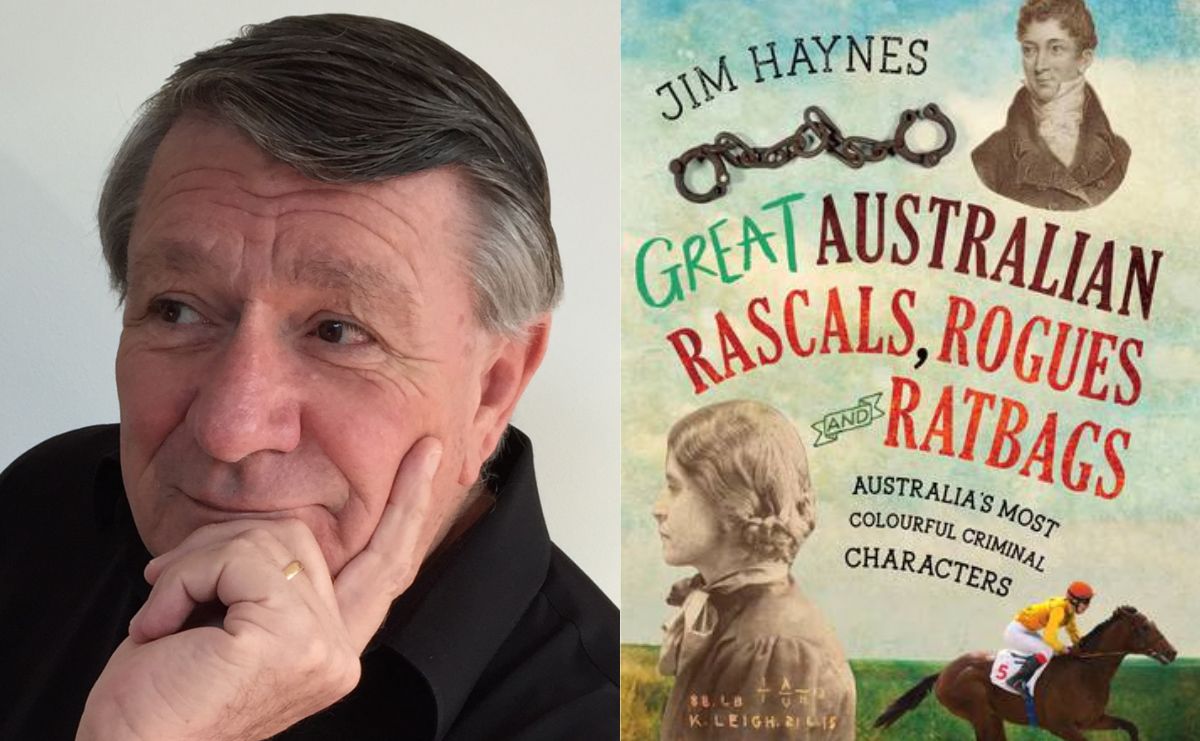To my ear, the epithets ‘rascals, rogues and ratbags’, which appear in the title of Jim Haynes’ new book, are rough synonyms, to which one could add rapscallion and scoundrel (albeit losing the alliteration with the latter). Haynes, however, uses the words in contradistinction to one another with each of his 15 subjects fitting into one of the categories. As he explains in the introduction, the rogues are more morally deficient than the rascals, while the ratbags are ne’er-do-wells with zany lives (who seemed to me largely coterminous with the rascals).
In the introduction, Haynes also inveighs against the tendency to romanticise criminals. He therefore sets himself up to walk a delicate tightrope, as most readers will pick this book up to be entertained.
It certainly succeeds in being entertaining and I think Haynes manages to avoid glamourising his sometimes psychopathic subjects. There is Kate Leigh, for example, the Sydney crime matriarch and Tom Skeyhill, a (fabricated) war hero whose mendacity must surely afford him some dubious record. One of the other rogues, Arthur Orton, seemed to me somewhat less morally objectionable, perhaps only because his deception was on such a colossal, almost quixotic, scale.
Haynes writes well, although the book is occasionally repetitious and, in my view, could have included fewer exclamation marks. It is also clearly well-researched, although this can be a double-edged sword as sometimes it is bogged down by unnecessary detail.
Of course, one person’s unnecessary detail will become another’s pet factoid. For example, I was very interested to learn that some of the primary documents relating to Mary Bryant’s successful escape from New South Wales in 1791 survived because they were collected by Jeremy Bentham, who was eager to show that his panopticon was a more efficient penal solution than transportation.
The book’s focus on the family histories of its protagonists could have been pared back, however, and the dramatis personae occasionally overwhelms the scope of the individual chapters. Additionally, although Haynes explicitly disavows the idea that criminality is inherited, I found the focus on his delinquents’ heritage slightly uncomfortable.
Read: Performance review: Much Ado About Nothing, Australian Shakespeare Company
Those quibbles aside, this is a highly readable book. Even if you know some of these stories, and I was only familiar with a couple, you will find some genuinely amazing new facts and insights. If you’re looking for a light history read, especially one that you can dip in and out of, you could do far worse.
Great Australian Rascals, Rogues and Ratbags, Jim Haynes
Publisher: Allen & Unwin
Format: Paperback
Pages: 304 pp
Publication: 1 November 2022
RRP: $32.99






